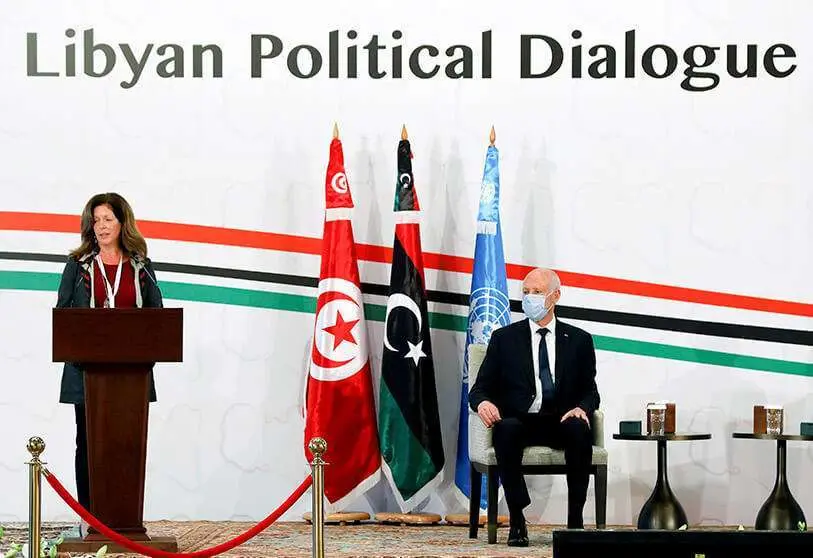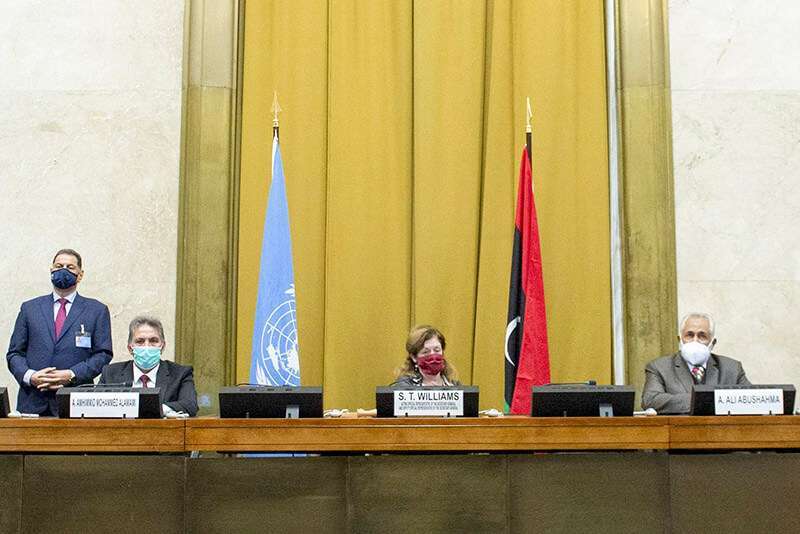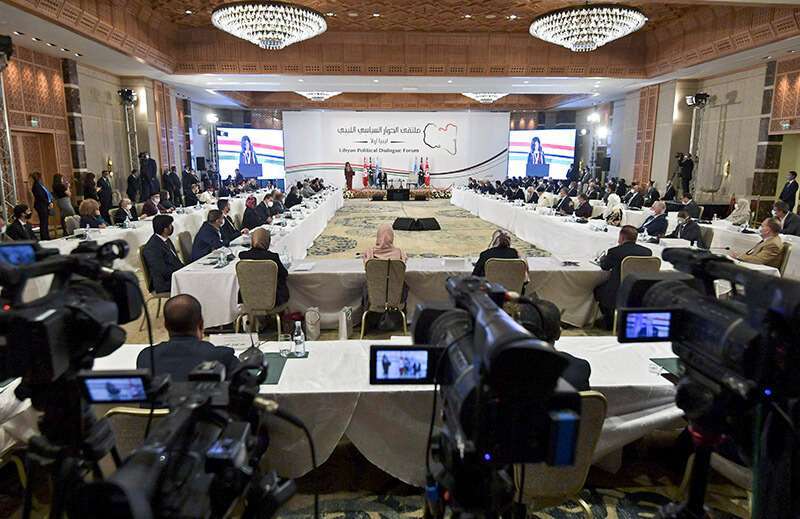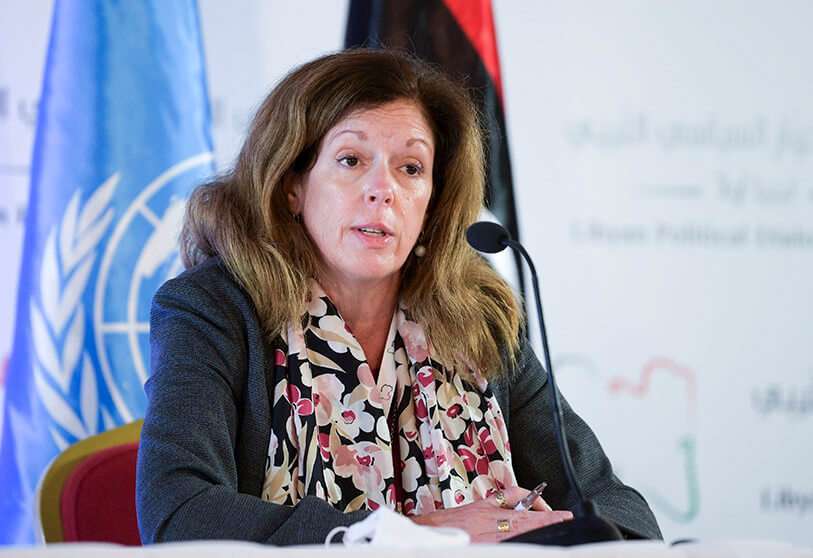UN announces political agreement for elections in Libya

After years of conflict provoked by a North Atlantic Alliance-backed uprising against Muammar Gdafi in 2011, Libya split into two rival administrations backed by several armed groups and foreign powers: the Government of National Accord (GNA) and the National Liberation Army (LNA).
After intense negotiations over the past year, with the Berlin Conference in January, meetings in Egypt, Morocco, Tunisia and now Libya itself, the participants in the negotiations on the future of the North African country have reached a pact to hold elections within 18 months.

“There’s real momentum and that’s what we need to focus on and encourage,” Stephanie Williams, the UN’s acting Libya envoy said on Wednesday at a news conference in Tunis, where 75 Libyan participants chosen by the global body have been meeting since Monday.
The meeting has reached a preliminary agreement on a road map to “free, fair, inclusive and credible parliamentary and presidential elections” that also includes steps to unite institutions, she added.
"These elections are to be held within a period not exceeding 18 months," Williams added in statements to the press on the third day of these week-long negotiations.
The aim of the talks in Tunisia is to agree on a government of national unity that will put an end to the division in Libya between Fayez Sarraj's UN-recognised GNA, which controls the capital Tripoli (west), and the faction of Marshal Khalifa Haftar, based in the east of the country, the LNA.

The sixth round of the 5+5 Joint Military Commission talks began on Tuesday in the town of Sirte. The UN mission, in a statement, added that this meeting aims to accelerate the implementation of a ceasefire agreement signed on October 23 in Geneva.
In order to advance the implementation of the Ceasefire Agreement signed in Geneva on 23 October 2020 and to build on the progress achieved last week in Ghadames, the 5+5 Joint Military Commission will re-convene for a sixth round of talks from 10 to 13 November in its new permanent headquarters in the city of Sirte (Libya) ". UNSMIL said in a statement.
UNSMIL added that it would support the talks in Sirte, and said that participants are expected to complete discussions on the implementation of the ceasefire, as well as the formation of specialised sub-committees.
Within the framework of these talks, 12 common points were reached on the implementation of a permanent ceasefire in Libya. As part of these negotiations, a military sub-committee was set up to oversee "the return of military forces to their headquarters and the withdrawal of foreign elements from military lines of contact".

The items agreed upon include the protection of oil facilities, the exchange of detainees between the parties-although no further details were given on a prisoner exchange-and the creation of technical teams for mine clearance, airport arrangements and combating hate speech. It also agreed to define the activities of the joint committee on security arrangements in the designated area, to unify the Guard of oil facilities and to open regular trips to Sebha and Ghadames.
The media office said Monday that a new group of Wagner Group mercenaries boosted their positions in western Sirte in Khazzan and Jaref areas, installing new radars upon their arrival.
The agreement reached in Geneva also served to end the blockade of oil facilities. The pro-Haftar militias blocked the oil installations and forced the National Oil Company of Libya (NOC) to decree "force majeure" in February, at the height of the offensive of the pro-GNA's militias against Haftar's forces, which had been besieging the capital since April 2019. The blockade, which began in January, caused Libya's pumping to drop from nearly 1.2 million barrels per day to scarcely 100,000. Export activity at three Libyan oil terminals such as Hariga, Zueitina and Brega has grown considerably. Brega is expected to export three shipments of 600,000 barrels in October, according to a loading programme to which Reuters has had access.
In recent months, three negotiating tracks have been open in three different locations: in Geneva, where negotiations began in February to map out the first steps to be taken. In Morocco, Bouznika, political and structural peace pacts are being discussed. And in Egypt, Hurgada, where the steps to be taken towards a ceasefire and the agreement on military and security restructuring are being discussed.








